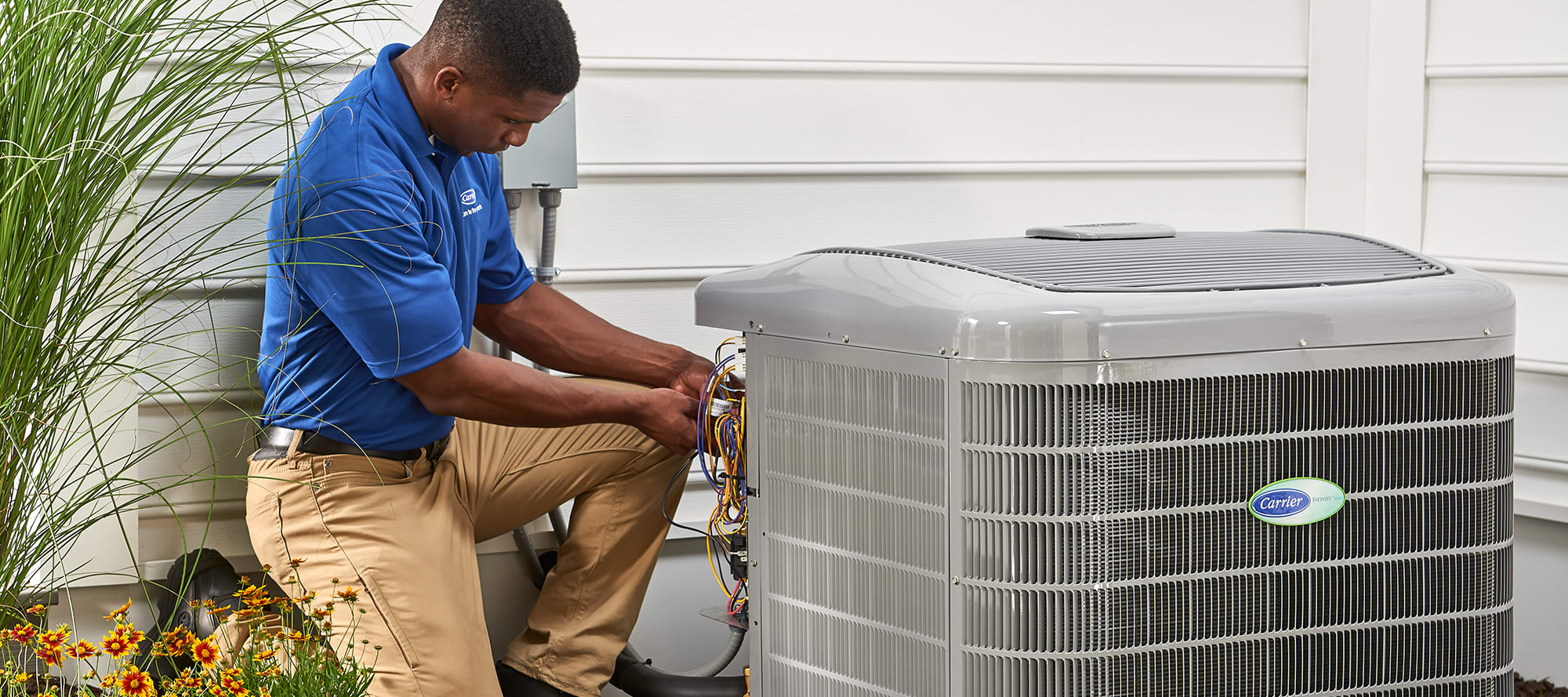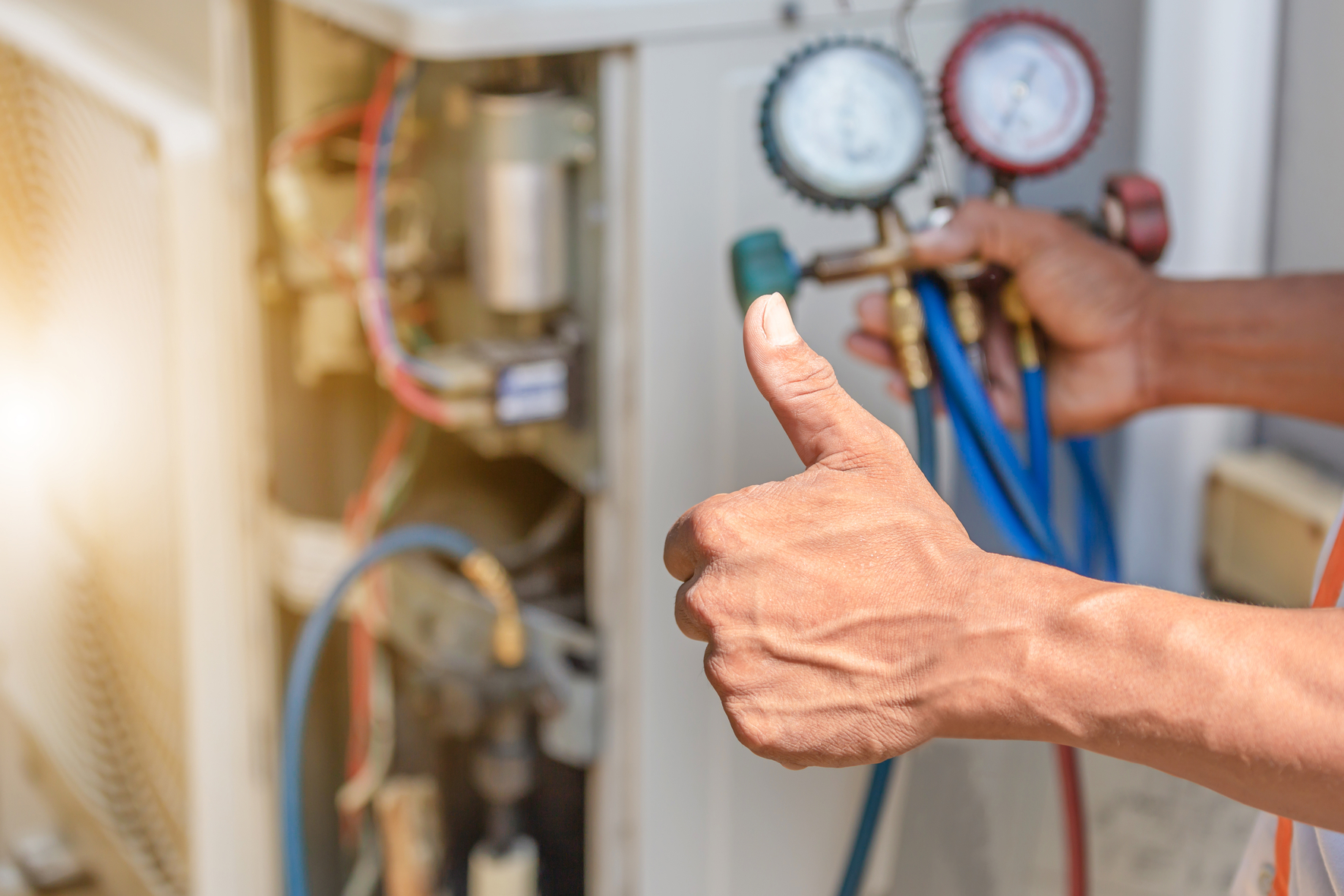Did you recognize that around 75% of house owners experience a/c sound issues at some point? When your a/c starts making strange noises, it can be rather disruptive to your peace and comfort.
From rattling and buzzing to squealing and banging, these sounds can indicate underlying issues that require interest. Recognizing the resource of the sound is necessary for effective repair work and ensuring your ac system operates effectively.
So, if you're tired of tolerating frustrating air conditioning noises interrupting your tranquility, there are solutions available.
Secret Takeaways
- Regular maintenance is necessary to attend to common air conditioning sound resources like ductwork problems and faulty electric motors.
- Address shaking sounds by inspecting for loosened parts, preserving follower electric motors, and adding resonance seclusion pads.
- Squealing and banging sounds can be fixed by examining belts, fan blades, and compressor coils for concerns.
- Repair service air conditioning noise problems by conducting visual assessments, carrying out soundproofing techniques, and troubleshooting for blockages.
Common Cooling Sound Resources
If your cooling system is making uncommon noises, maybe because of among numerous common resources.
One constant wrongdoer is issues with the ductwork. Gradually, air ducts can establish leaks, loose connections, and even blockages. These issues can create air to flow erratically, causing whistling or rattling sounds. An extensive ductwork inspection by a specialist can help recognize and correct these issues, recovering your system's smooth operation.
An additional usual source of noise in a/c systems is a defective electric motor. The electric motor is an important part that drives the fans and various other moving components within the system. If the motor is worn or damaged, it can create grinding, screeching, or clunking noises. In such instances, electric motor replacement might be required to remove the resource of the disturbance. Normal maintenance and prompt motor replacement when required can help keep your air conditioning system running quietly and successfully.
Diagnosing Rattling and Buzzing Appears
To deal with rattling and humming sounds in your cooling system, begin by evaluating the parts that can be creating these noises, such as loosened parts or worn-out elements. Resonance isolation is type in solving these problems. Check for any loose screws, screws, or panels that may be vibrating versus each other throughout procedure. Tightening these can usually ease the rattling sounds.
Furthermore, inspect the fan motor for any signs of damage. Regular follower motor upkeep, such as lubrication and cleansing, can help reduce buzzing sounds triggered by rubbing or breakdown.
If the rattling persists after examining and tightening elements, consider including resonance seclusion pads or places to soak up the excess resonances. These pads function as a barrier between the shaking parts, lowering the noise. Keep in mind that resolving these sounds promptly can stop more damages to your air conditioning system and guarantee its peak efficiency.
Addressing Squealing and Banging Noises
When attending to screeching and banging noises in your a/c system, beginning by identifying the source of the noises through a detailed inspection of the system's parts. Inspect the belt stress in addition to the motor bearings, as loose belts or worn-out bearings can cause screeching noises. Evaluate the follower blade for any type of blockages or damages that might cause banging noises when the fan turns. In addition, take a look at the compressor coil for any type of particles or concerns that could be creating the noises.
To attend to squealing noises associated with belt stress, readjust the tension complying with the producer's guidelines to make sure it's within the suggested array. If the motor bearings are the offender, think about oiling them ideally; or else, they may need to be replaced. For banging sounds caused by fan blade concerns, repair service or change the harmed blades promptly. When it involves the compressor coil, cleaning it completely can commonly fix any kind of noise-related problems. By addressing these potential sources of screeching and banging sounds, you can recover your a/c system to its ideal functioning state.
Tips for Repairing Air Conditioning Noise
When faced with a/c sound concerns, beginning by carrying out a visual examination of the device's parts for any type of noticeable indicators of damages or wear. Look for loose components, damaged belts, or particles that may be creating the sound. If you notice any concerns, make sure to tighten up loosened elements, change harmed parts, and clear out any debris to see if the noise boosts.
To address cooling noise troubles, take into consideration soundproofing techniques to minimize the audio transmission from the device. Shielding the walls around the unit, mounting soundproofing panels, or positioning rubber pads beneath the system can help wet the sound successfully.
Regular maintenance is essential to avoid a/c sound. ac installation Be specific that the unit is clean, lubricated, and well-kept to decrease potential problems. Fixing steps like examining the fan blades and motor for any blockages can additionally help detect and repair noise issues. For minor issues, do it yourself solutions such as tightening up screws or readjusting components may settle the sound without the demand for specialist assistance.
Making Sure Effective Air Conditioner Operation
Ensure your a/c runs efficiently by scheduling routine upkeep checks and maintaining the unit clean and well-lubricated. Guaranteeing your air conditioning system functions at its best not only lowers sound however additionally lowers energy usage. To achieve this, execute sound reduction techniques such as placing vibration pads under the unit to moisten sound transmission and guaranteeing all parts are securely tightened up. Additionally, tidy or change air filters frequently to stop air movement obstructions that can strain the system and increase noise degrees.
Energy intake optimization is essential for effective air conditioner operation. Set your thermostat to an appropriate temperature level to prevent straining the device. Utilize ceiling followers to aid flow amazing air more effectively, permitting you to raise the thermostat slightly without compromising comfort. Take into consideration setting up a programmable thermostat to adjust temperature levels instantly when you're away. By following these techniques, you can preserve a comfy interior atmosphere while minimizing energy prices and noise levels.

Regularly Asked Inquiries
Can Cooling Sound Degrees Impact the High Quality of Indoor Air?
High cooling noise levels can impact interior air quality by adding to sound pollution, which can affect your health.

To resolve this, take into consideration soundproofing options to lower the noise from your cooling system.
Is There a Connection In Between A/c Sound and Energy Performance?
When it concerns air conditioning noise and energy effectiveness, there's without a doubt a relationship.

The loud noises created by your AC unit can suggest ineffectiveness that lead to boosted energy consumption.
By addressing and lowering the sound pollution, you can enhance the general efficiency of your system.
Exactly How Can I Lower Cooling Noise Without Jeopardizing the Cooling Efficiency?
To decrease cooling noise without endangering cooling performance, consider soundproofing solutions like acoustic insulation.
You can optimize efficiency by tuning the system for performance while wetting unwanted audios.
Try ensuring all parts are correctly mounted and maintained, and check for loosened components that could be creating excessive sound.
Are There Any Type Of Certain Rules or Standards Pertaining To Acceptable Sound Levels for Air Conditioning Units?
When it pertains to a/c systems, there specify regulations and guidelines in position to assure conformity with acceptable noise degrees. These standards assist endure a comfy atmosphere without causing disturbances.
Rules pertaining to noise levels for a/c units differ depending upon place, yet usually concentrate on minimizing sound exhausts to a level that does not interfere with daily activities. It is essential to be aware of these standards to make certain your unit satisfies the needed standards.
What Are Some Long-Term Maintenance Tips to stop A/c Noise Issues in the Future?
To stop cooling noise concerns long-term, ensure you adhere to regular upkeep. Clean or change filters, look for loose parts, and maintain the device clean.
Take into consideration soundproofing techniques like adding insulation around the unit. By staying on top of maintenance and taking actions to reduce sound, you can delight in a quieter and extra efficient a/c system in the future.
Final thought
Since you have actually determined the common sources of air conditioning sound and learned how to diagnose and repair them, you can appreciate a quieter and a lot more reliable cooling system.
Remember to regularly look for any type of uncommon noises and address them promptly to stop any more damages.
By taking care of your air conditioning device, you can ensure it operates efficiently and successfully for many years to find.
